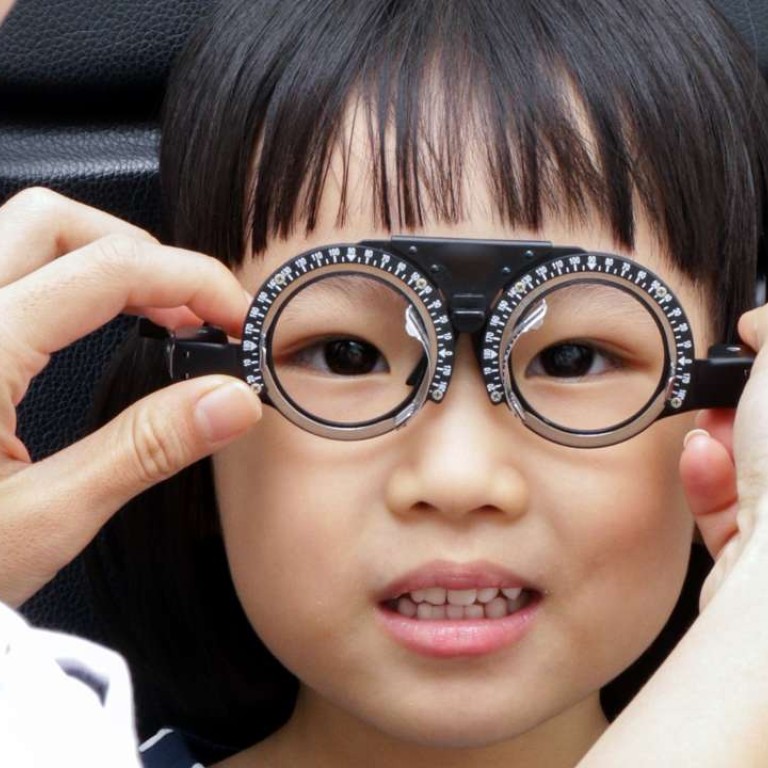
Doctors raise the alarm at steep rise in myopia among Hong Kong children
Government urged to take action after figures reveal a 10.5pc increase in youngsters with nearsightedness
Nearsightedness is on the rise among Hong Kong children, with close to 80,000 found to be suffering the condition in the last school year, a 10.5 per cent increase.
Department of Health figures showed rates among primary and secondary pupils were 21.7 per cent and 15.8 per cent respectively in the 2014-15 school year.
The data was made available on Tuesday as eye experts warned that nearsightedness, or myopia, in children had become an imminent public health issue and called on the government to take action.
Optometrists at Polytechnic University recently conducted in-depth studies on 120 students aged 12 to 18 with a high degree of myopia – on average over -8 diopters. A diopter, expressed in negative numbers for myopia, is the power of the lens needed to correct vision. The higher the number, the stronger the lens required.
The study found that over three-quarters of the students had already developed retinal problems because of myopia, with one case so serious it was classified as “sight-threatening”.
Myopia occurs when the eyeball is too long, relative to the focusing power of the cornea and lens of the eye. Light does not focus on the retina as it should, making distant objects appear blurry.
It can also be caused by the cornea or lens being too curved for the length of the eyeball. In some cases, myopia is due to a combination of these factors.
Mild cases do not pose a big risk, but severe myopia can lead to retinal detachment, glaucoma or cataracts. People with severe myopia usually started getting nearsighted when young and it progresses year after year.
Dr Patrick Ting Wai-ki of the Hong Kong Society of Professional Optometrists warned parents not to overlook the problem.
“Parents take it lightly, thinking it is simply a minor inconvenience that requires wearing glasses. But with nearsightedness progressing over the years, the eyes will grow so long that the retinas could be damaged,” he said.
Dr Vincent Ng Sheung-shun, of Polytechnic University’s school of optometry, echoed Ting’s view and called for urgent government efforts to promote eye health in schools, including more time for outdoor activities.
Both experts warned parents not to let their children spend too much time on electronic devices.
A Health Department spokesman said it had issued a report in 2014 on healthy use of the internet and electronic screen products.
The spokesman also said the department’s Student Health Service Centre conducted annual checks of students. “Those who are found to have problems will be referred to professional optometrists for further assessments and assistance.”

